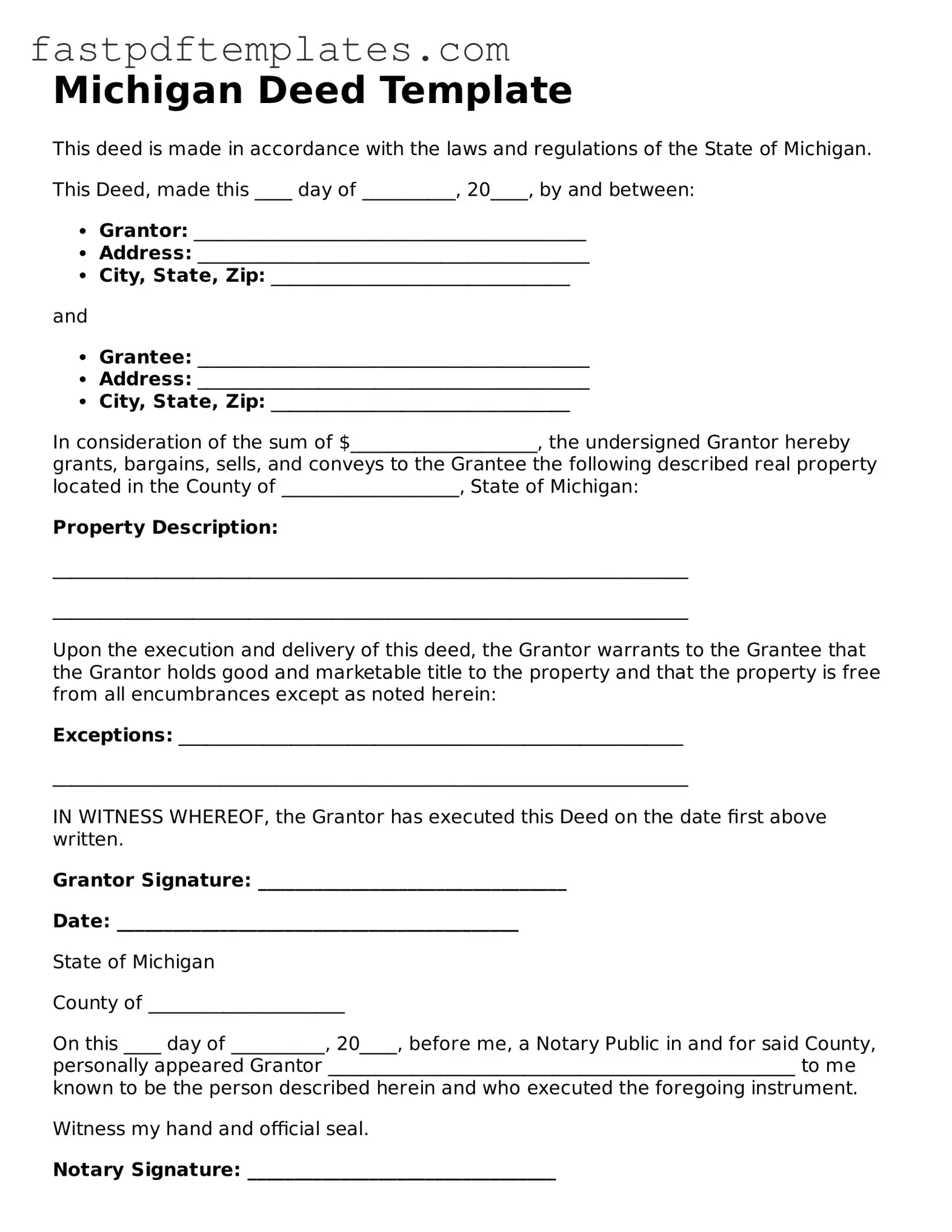Attorney-Approved Michigan Deed Document
A Michigan Deed form is a legal document used to transfer ownership of real estate in the state of Michigan. This form outlines the details of the property being transferred and the parties involved in the transaction. Understanding the specifics of this form is crucial for anyone looking to buy or sell property in Michigan.
Access Document

Attorney-Approved Michigan Deed Document
Access Document
Your form still needs completion
Complete your Deed online and download the final PDF.
Access Document
or
Click for PDF Form
